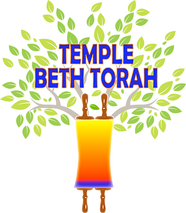August 9, 2024
I’m sure I wasn’t the only Jewish nerd kvelling when I heard a politician quoting the Mishnah this week. Even though Pennsylvania Governor Josh Shapiro wasn’t selected to be Kamala Harris’s vice-president, the fact that he was a contender was exciting – and anxiety-provoking – for many American Jews. What was also heartening was that Governor Shapiro is proud of his Jewish heritage, and knowledgeable about Jewish teachings, or at least one Jewish teaching. Here’s what he said: “I lean on my family and I lean on my faith which calls me to serve. And I am proud of my faith. Now, hear me, I’m not here to preach, y’all, but I want to tell you what my faith teaches me. What does it say? My faith teaches me that no one, no one is required to complete the task, but neither are we free to refrain from it. That means that each of us has a responsibility to get off the sidelines, to get in the game and to do our part.”
Governor Shapiro was paraphrasing a well-known teaching from Pirkei Avot, the 2nd-century collection of rabbinic sayings. Here’s the original: “[Rabbi Tarfon] used to say: Lo alecha ham’lacha ligmor. V’lo atah ben chorin libatel mimenah. It is not upon you to complete the work, but neither are you free to desist from it” (2:16). The saying is often quoted to demonstrate our shared responsibility for tikkun olam, repairing the world. That’s how Governor Shapiro used it, saying that each of us must do our part for this country. When we look around at the brokenness of our work today, this text can be an uplifting, hopeful teaching, reminding us not to get overwhelmed with the size of the task but to continue to do what we can to improve our corner of the world each and every day. As Rabbi Rami Shapiro interprets our text, “Do not be daunted by the enormity of the world’s grief. Do justly, now. Love mercy, now. Walk humbly, now. You are not obligated to complete the work, but neither are you free to abandon it.” Rabbi Tarfon urges us not to give up, but to keep working towards a better future. It’s a beautiful message, so no wonder the text is often quoted by rabbis, and was turned into a beloved song many of us sang at Hebrew school or Jewish summer camp.
However, when we study Rabbi Tarfon’s words in their original context, we learn a slightly different lesson. It helps to read it with the teachings that come right before:
Rabbi Elazar said: Be diligent in the study of the Torah… And know before whom you toil, and that your employer is faithful, for He will pay you the reward of your labor.
Rabbi Tarfon said: the day is short, and the work is plentiful, and the laborers are indolent, and the reward is great, and the master of the house is insistent.
He [Rabbi Tarfon] used to say: It is not your duty to finish the work, but neither are you at liberty to neglect it; If you have studied much Torah, you shall be given much reward. Faithful is your employer to pay you the reward of your labor; And know that the grant of reward unto the righteous is in the age to come (2:14-16).
We won’t parse each phrase of these teachings, but I hope you noticed what kind of work these rabbis are talking about. Here, the work is actually studying Torah. According to Rabbi Elazar and Rabbi Tarfon, Torah study should be approached the same way we would approach a job: with a sense of obligation and a sense of urgency. That’s why Rabbi Tarfon says, “the day is short, the work is plentiful… and the Boss is demanding.” Fortunately, he also says, “the reward” (literally, “the salary”) is great, though we may not get it until we enter the World to Come. For the rabbis of the Mishnah, studying Torah was a Jewish person’s (well, man’s) highest calling and personal duty.
It is not upon you to complete the work, but neither are you free to desist from it.” Rabbi Tarfon’s teaching now means something different: we are not required to learn the whole Torah -- that is, the whole collection of sacred texts -- but we are also not at liberty to ever abandon our study. We’re meant to keep learning, to keep working to deepen our knowledge and understanding of Jewish tradition. I like to remind our thirteen-year olds of this teaching when they celebrate becoming B’nei Mitzvah. You’re not done, I say. We’re never done!
We’re never done, and not just because the number of Jewish texts is more than one person could ever study in a lifetime. We’re never done because the purpose of our study isn’t just to memorize these ancient words or even to understand what they meant to the Jews who wrote them. The purpose of our study is to continually find new ways to apply these very old teachings to our own lives, to find ever new meaning in these ancient words. As my teacher Dr. Rachel Adler says, “The Torah is not infallible, but it is inexhaustible.”
Rabbi Tarfon reminds us of our ongoing obligation to study Torah. Our modern application of his saying reminds us of our ongoing obligation to repair the world. Fortunately, we don’t have to choose just one interpretation. In the end, if we find Rabbi Tarfon’s teaching instructive when thinking about how to find the energy and passion to continue to work for a better world, then we are, in fact, following his teaching by continuing to interpret it and apply it to our lives today. Lo alecha ham’lacha ligmor. It is not up to us to complete the work, but neither are we free to desist from it. The work of learning and living Torah is never done.
_edited_edited.png)